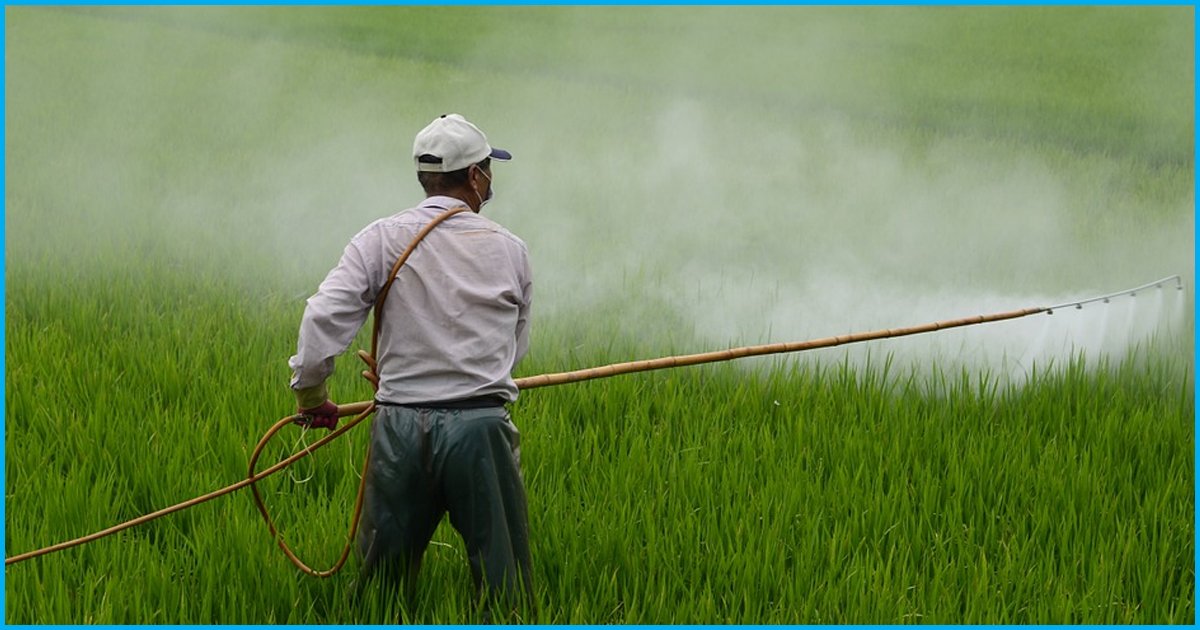
7 Pesticides Banned Across The World, Still Used By Indian Farmers Putting Them At Risk
Around 50 farmers have died, and 800 are hospitalised in the Yavatmal and neighboring districts of Maharashtra after an insecticide known as ‘Profex Super’ was sprayed on their Bt cotton plantations. They died after accidentally inhaling toxic fumes. At least 20 have lost vision too.
The recent deaths of the farmers in Maharashtra and also elsewhere have again reopened the debate about the rationale of using all such pesticides in India which are either banned or restricted elsewhere in the world due to their high toxicity.
Against the backdrop of the Maharashtra incidents, a Delhi-based organisation ‘Centre for Science and Environment (CSE)’ on 18 October came out with a list of seven immensely or highly hazardous pesticides which continue to be used in India despite these being banned in many countries, reports The Times of India.
The think tank questioned the central committee, headed by IARI scientist Anupam Verma, which had in 2015 reviewed the use of these pesticides but preferred not to ban them immediately.
Seven hazardous pesticides are on the list of 18 Class-I (classified as extremely/highly hazardous), which accounted for nearly 30% of the total pesticide use in India in 2015-16. Though the central committee had reviewed the use of 66 pesticides and recommended a ban on 13 of them from 2018 and phasing out of six others by 2020, allowing the use of others in the list till the next review is something which bothers researchers and farm experts.
The Deputy General of CSE, Chandra Bhushan said, “Deaths and illnesses due to pesticides can be avoided if we urgently fix some of the crucial gaps in our regulations and improve its enforcement.” He also stressed on the need of an exclusive legislation focussing on pesticide management to address the issues related to the unsafe use of pesticides.
Referring to the international code of conduct on pesticide management, the CSE proposed saying that all pesticides whose handling and application require the use of personal protective equipment that is uncomfortable, expensive or not readily available should be avoided, especially in the case of small-scale users and farm workers in hot climates.
The CSE has pointed out that pesticides like Monocrotophos, Oxydemetonmethyl, Acephate and Profenophos were believed to be responsible for the deaths and illness in Maharashtra.
The World Health Organisation (WHO) categorises these pesticides in Class-I – they are harmful even when used in minimal amounts.
In the midst of this, the Maharashtra government has named Monocrotophos as one of the five chemical solutions which could be banned from being sold. The agriculture department, which is considering a 60-day ban, has sought views from experts and various stakeholders.
The Logical Indian Take
Pesticide poisoning is a chronic problem in the country. Every year, there are about 10,000 reported cases of pesticide poisoning in India. In 2015, nearly 7,000 people died because of accidental intake of insecticides and pesticides.
After the death of the farmers in Yavatmal, Maharashtra, the state government on 17 October had ordered a Special Investigation Team (SIT) probe into the death of farmers due to inhalation of pesticides.
But the primary issue remains unattended to. The Logical Indian urges the government to take into account the plight of the farmers and bring out legislation to ban these pesticides immediately.
 All section
All section













